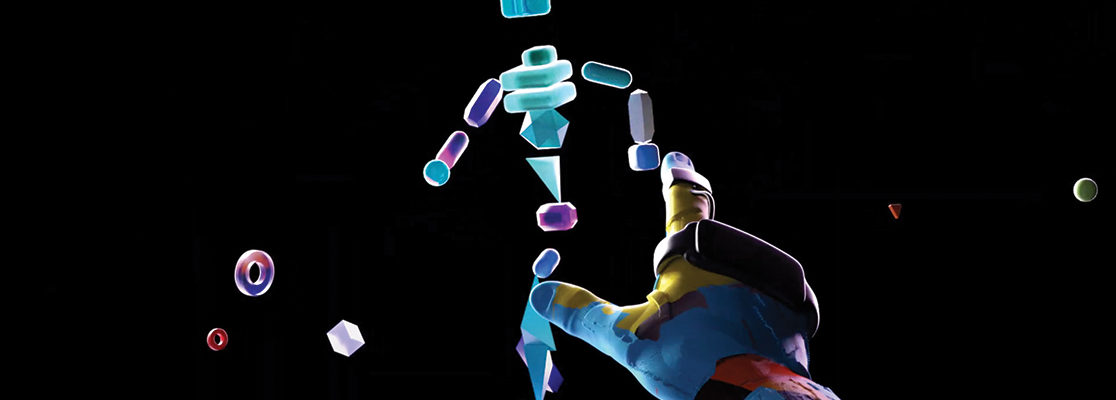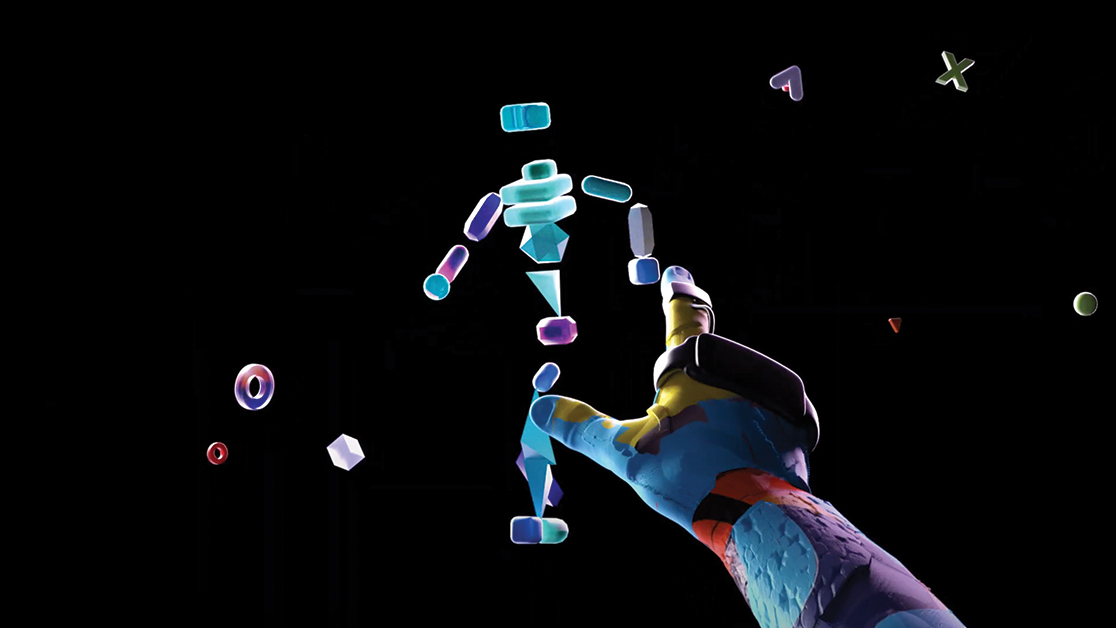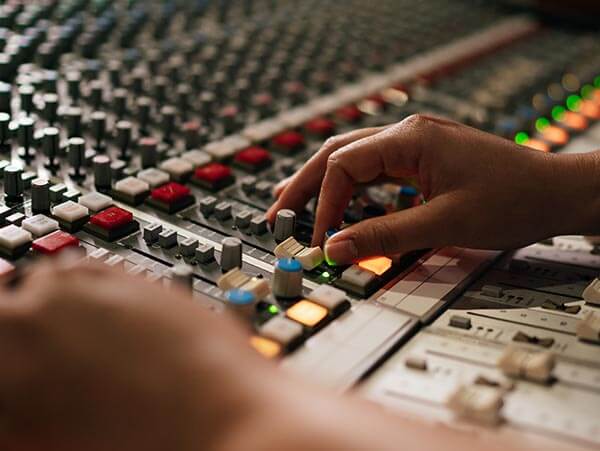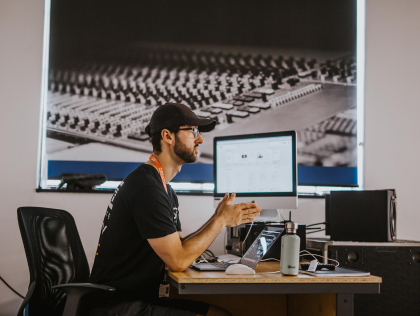BA/BSC (Hons) Audio Production Degree
Develop your creativity and gain confidence working in high-quality recording and post-production suites with SAE’s Audio Production degree. Get to grips with the latest music production software, including Pro Tools, Ableton and FMOD, and use your newfound knowledge across the creative worlds of music, film, TV, games and more.SSL Scholarship available at SAE Leeds.
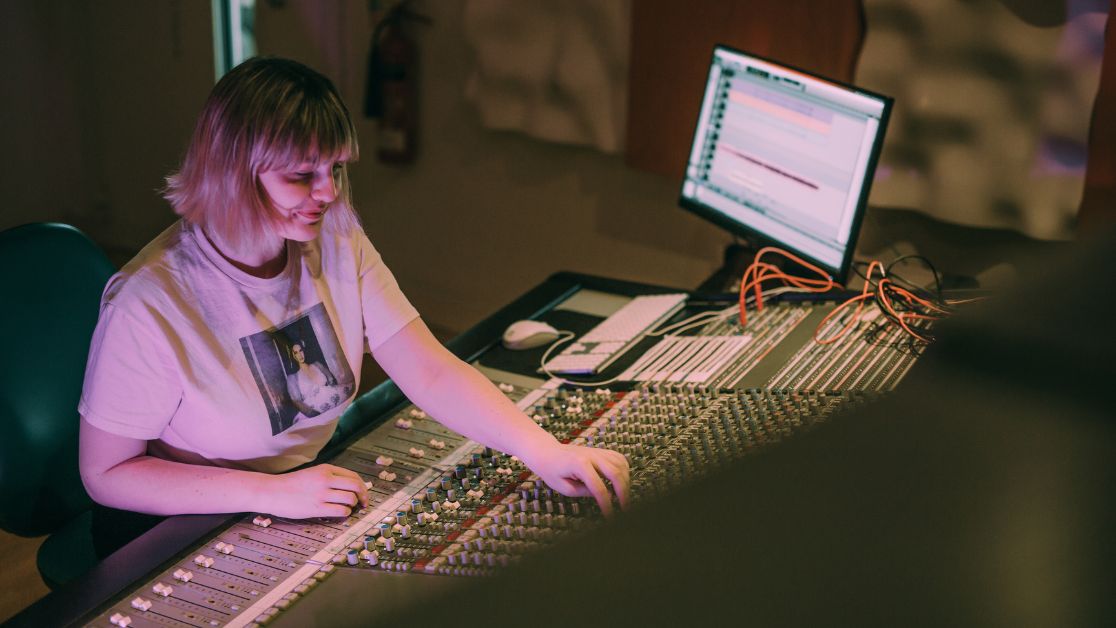
TWO-YEAR ACCELERATED DEGREE:
£11,440 per year
THREE-YEAR DEGREE:
£9,535 per year
The annual tuition fee is fully funded via Student Finance England for eligible home-fee students.
TWO-YEAR ACCELERATED DEGREE:
£9,000 per year
You may also be eligible for a bursary or discount, please enquire with our friendly Admissions Team.
THREE-YEAR DEGREE:
£7,500 per year
You may also be eligible for a bursary or discount, please enquire with our friendly Admissions Team.
TWO-YEAR ACCELERATED DEGREE:
£11,440 per year
THREE-YEAR DEGREE:
£9,535 per year
The annual tuition fee is fully funded via Student Finance England for eligible home-fee students.
TWO-YEAR ACCELERATED DEGREE:
£11,440 per year
THREE-YEAR DEGREE:
£9,535 per year
TWO-YEAR ACCELERATED DEGREE:
£11,440 per year
THREE-YEAR DEGREE:
£9,535 per year
Scholarship available:
Yes – click here to apply
The annual tuition fee is fully funded via Student Finance England for eligible home-fee students.
TWO-YEAR ACCELERATED DEGREE:
International students (non-EU/EEA/Swiss)*: £16,500 per year
EU/EEA/Swiss students*: £12,500 per year
THREE-YEAR DEGREE:
International students (non-EU/EEA/Swiss)*: £15,750 per year
EU/EEA/Swiss students*: £11,250 per year
*Student visa required
For more information regarding SAE’s EU/EEA/Swiss students bursary policy, please read the SAE UK EU Students Bursary Policy.
TWO-YEAR ACCELERATED DEGREE:
International students (non-EU/EEA/Swiss)*: £16,500 per year
EU/EEA/Swiss students*: £12,500 per year
THREE-YEAR DEGREE:
International students (non-EU/EEA/Swiss)*: £15,750 per year
EU/EEA/Swiss students*: £11,250 per year
*Student visa required
For more information regarding SAE’s EU/EEA/Swiss students bursary policy, please read the SAE UK EU Students Bursary Policy.
TWO-YEAR ACCELERATED DEGREE:
International students (non-EU/EEA/Swiss)*: £16,500 per year
EU/EEA/Swiss students*: £12,500 per year
THREE-YEAR DEGREE:
International students (non-EU/EEA/Swiss)*: £15,750 per year
EU/EEA/Swiss students*: £11,250 per year
*Student visa required
For more information regarding SAE’s EU/EEA/Swiss students bursary policy, please read the SAE UK EU Students Bursary Policy.
TWO-YEAR ACCELERATED DEGREE:
International students (non-EU/EEA/Swiss)*: £16,500 per year
EU/EEA/Swiss students*: £12,500 per year
THREE-YEAR DEGREE:
International students (non-EU/EEA/Swiss)*: £15,750 per year
EU/EEA/Swiss students*: £11,250 per year
*Student visa required
For more information regarding SAE’s EU/EEA/Swiss students bursary policy, please read the SAE UK EU Students Bursary Policy.
TWO-YEAR ACCELERATED DEGREE:
International students (non-EU/EEA/Swiss)*: £16,500 per year
EU/EEA/Swiss students*: £12,500 per year
THREE-YEAR DEGREE:
International students (non-EU/EEA/Swiss)*: £15,750 per year
EU/EEA/Swiss students*: £11,250 per year
*Student visa required
For more information regarding SAE’s EU/EEA/Swiss students bursary policy, please read the SAE UK EU Students Bursary Policy.
January and September
January and September
January and September
September 2025
Offers will be made to applicants who are expected to meet, or exceed the entry requirements below, in addition to supplying a personal statement:
SAE Institute will accept non-standard entry applications, which do not meet the 72 UCAS points or equivalent, and/or maths/English at level 2 or equivalent as required:
Students whose first language is not English will need a qualification that demonstrates competence in English, equivalent to UK GCSE (Level 2) grade 4 (c) or above.
Equivalent qualifications can be accepted, where these qualifications have been verified by ENIC and are adopted widely within the UK Higher Education sector, including:
- International ESOL C1 Expert – pass in all four components
- International ESOL SELT B2 (Listening, Reading, Writing, Speaking) – minimum 33 in all components
- ESOL Integrated Skills in English II – pass in all components
*Accepted on exceptional basis for the applicants whose local test centres are affected by closures due to Covid-19
WHAT YOU CAN EXPECT FROM YOUR Audio Production DEGREE
If you’re ready to launch your career as an audio production professional, SAE’s BA/BSc (Hons) Audio Production degree is the perfect way to make it happen. This music production degree will see you gain theoretical knowledge and essential technical audio skills so you can work confidently in your chosen area of the audio industry – whether that’s in live sound/music, film, animation, games, immersive audio and programming, or audio drama.
Available in a 2-year accelerated format across all SAE campuses or the more traditional 3-year set-up, you can choose the study calendar that suits your lifestyle.
Learning in SAE’s state-of-the-art recording studio environments, you’ll become comfortable at using both small and large format consoles, as well as industry software and hardware from brands including Audient, SSL and Neve. You’ll also explore desktop music production, learning to produce ‘in the box’ using a variety of Digital Audio Workstations (DAWs), such as Pro Tools and Logic Pro. As you develop your professional practice, you’ll follow creative audio production workflows through from start to finish – from pre-production and recording to mixing, mastering and distribution.
Moving up the levels
As you progress your studies, you’ll put the academic and theoretical ideas you explore, such as sound theory and sound design principles, into practice as you create a portfolio of creative work both individually and as part of a team. You’ll regularly produce music across different genres with your fellow Audio Production degree students, as well as collaborating on creative projects with those from other SAE disciplines, which could include providing audio for games, films, documentaries and animations.
Across your studies, you’ll be supported by SAE’s Experts – all highly experienced educators and some of the audio production industry’s most successful creative professionals. They’ll guide you through your modules, ensuring you develop a solid understanding of the music and audio production industries, and essential business, marketing, legal and financial skills. Towards the end of your studies, you’ll work with them to design your Major Project – an in-depth exploration of your chosen area of interest across the audio production industries.
At the end of your time at SAE, you’ll graduate with proficient audio production skills, a showreel of high-quality work, an impressive network of creative connections, and the drive to either progress your postgraduate studies or launch a successful audio production career.
Are there scholarships available for Audio Production?
Yes! We’re excited to announce our latest SAE scholarship in partnership with leading audio equipment manufacturer Solid State Logic (SSL).
This unique opportunity offers one UK-based student full course fee coverage for our Audio Production degree in Leeds.
Turn your passion into a profession, apply for the SSL scholarship in Audio Production at SAE Leeds.
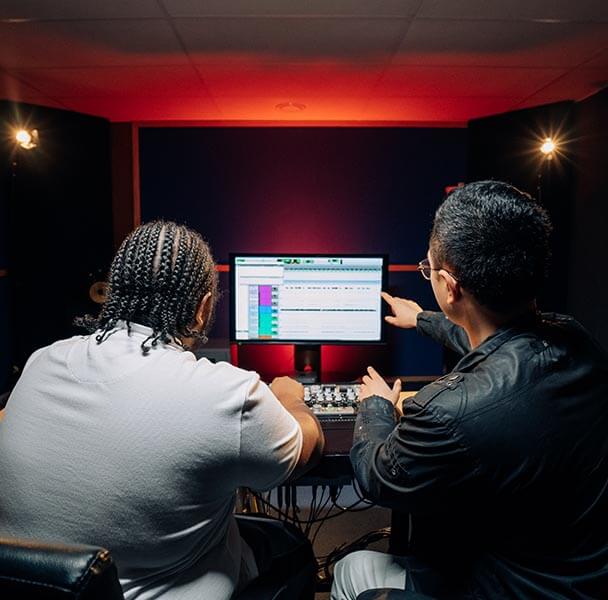
What you'll learn
- Master your craft on small and large format consoles in industry-relevant studio environments.
- Confidently operate industry-standard hardware and software, including Neve, SSL, Audient, Pro Tools and Logic Pro.
- Combine hands-on immersive training with academic learning for holistic education from day one.
- Explore and record your favourite music genres.
- Gain entrepreneurial and music business skills to take into your audio production career.
- Collaborate creatively with SAE students from other courses, such as designers, game developers, filmmakers and animators.
- Develop a significant portfolio of work to present to industry.
- Build an impressive network of connections across the wider creative industries.
- Graduate career-ready with practical employment skills gained through strong industry links.
What your course structure will look like
The BA/BSc (Hons) Audio Production course can be taken as an accelerated 2-year degree, split over 6 trimesters, or a traditional 3-year degree, split over 6 semesters. Its structure follows 3 distinct stages – each designed to help you develop specific skills. Dividing it this way ensures you graduate as a well-rounded audio production professional with a universal understanding of the entire audio production process.Stage 1 (T1/S1 and T2/S2) provides a foundation of core technical knowledge.
Stage 2 (T3/S3 and T4/S4) broadens your skills, exploring new areas of audio production.
Stage 3 (T5/S5 and T6/S6) is all-encompassing, covering every aspect of audio production from conception to completion, including managerial aspects like project management, finance and promotion.
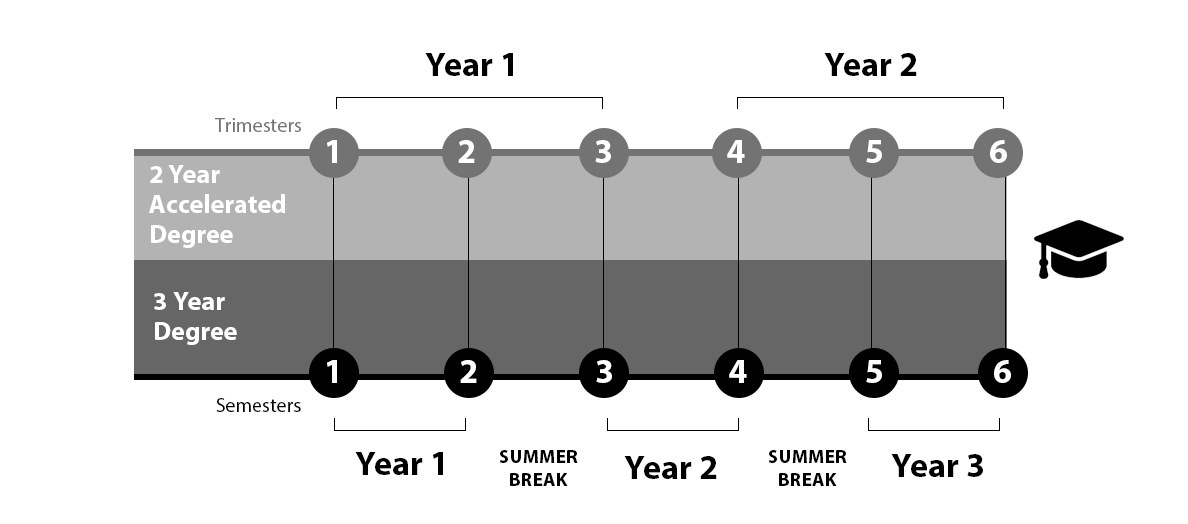
A highly practical course, you’ll familiarise yourself with the concepts of signal routing and the basic applications of microphones and loudspeakers, including the set-up of sound reinforcement systems.
Topics include:
- Sound Theory
- Decibels
- Acoustics
- Introduction to DAWs and sequencing environments
- Equalisation (EQ), effects and dynamic range processors
- Basic audio signal routing and wiring
- Electronics
- Microphones and loudspeakers
Topics include:
- Digital Audio Workstations
- Synthesis and sampling
- Sequencing
- MIDI
- Basic sound design
- Effects processing
- Dynamics processing
- Mixing
- Intro to music theory
- Presentation techniques
- Intellectual property and copyright
Topics include:
- Signal flow principles
- Signal flow diagrams
- Signal flow applications
- Recording procedures and techniques
- Mixing procedures and techniques
- Digital Audio Workstations
- Audio editing
- Principles of signal processing equalisation, dynamics, and effects
- Time and pitch correction
Topics include:
- Console types and differences
- Components of consoles
- Workflows: analogue, digital, hybrid
- Integrating hardware and DAWs
- Care and maintenance
- Production planning
- The recording process
- The mixing process
- Audio editing techniques
- Finalising
- Sound restoration
- Aesthetics and musical context
Topics could cover:
- Sound for media (film/TV, games, animation, podcast/radio)
- Sound design and editing
- Foley recording
- Music and electronic music composition
- Immersive audio
- Object-based programming
As you progress your project, you’ll learn production techniques including effects, pitch correction and advanced editing. Expanding on skills gained in earlier units, you’ll increase your knowledge of mixing techniques to incorporate hybrid and analogue console and outboard equipment workflows. You’ll also explore mastering in the context of the final delivery format of your project.
Via your project, you’ll discover fundamental business, marketing and finance concepts, as you discuss different audio and music productions and freelance work. You’ll also gain an insight into health and safety, the legal side of the music industry – copyright, ownership and contracts – as well as the roles played by bodies such as the Performing Right Society (PRS for Music) and Phonographic Performance Limited (PPL).
Across the module, you’ll be encouraged to collaborate with students from other SAE disciplines outside of your audio production course to create additional media for your project, including graphic design, artwork, music videos and websites.
Topics could cover:
- Advanced music production tools and techniques
- Large format consoles
- Advanced recording techniques
- Location music recording
- Live sound
- Mixing on a large format console
- Hybrid workflows
- Mastering
- Business, legal issues, marketing and finance
Exploring an audio-specific area of interest, you can choose to pursue a research project in your field of specialisation or undertake a structured industry-based live project designed in collaboration with your Experts and the wider industry. Using your mastery in creative media practice in combination with evidence-based decision making, you’ll develop a proposal for your final Major Project (Trimester 6). Study areas could include programming environments, electroacoustic music, electronic composition, game audio, film sound and immersive audio… or something else entirely.
Topics could cover:
- Programming environments
- Electroacoustic music
- Electronic composition
- Game audio
- Film sound
- Innovation and entrepreneurship
- Live sound and events
- Immersive audio
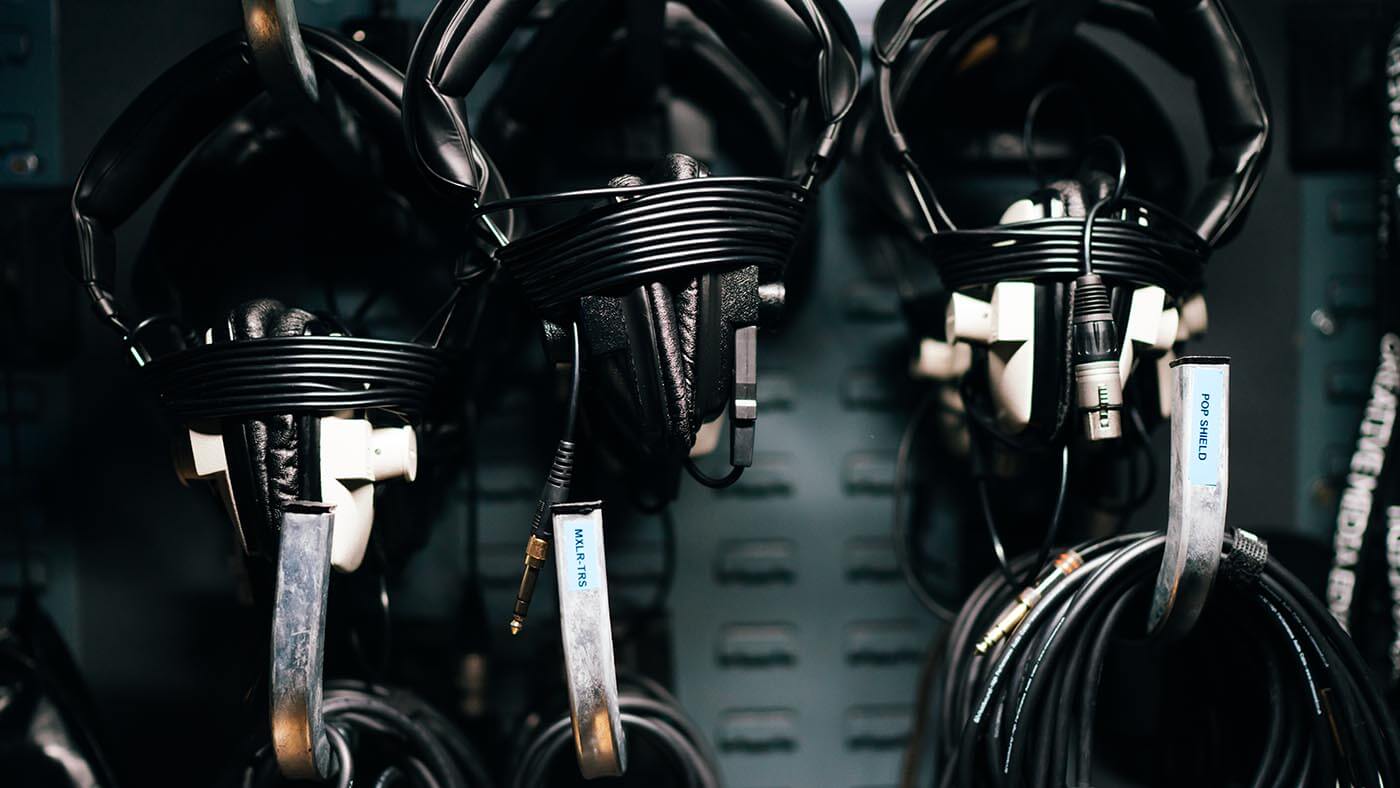
YOUR DREAM CAREER BEGINS NOW
With our industry connections, specialised teachers and personalised education in world-class facilities, you can unleash your creative future with an Audio Production degree.Tools & Software




Big reasons to study Audio Production at SAE
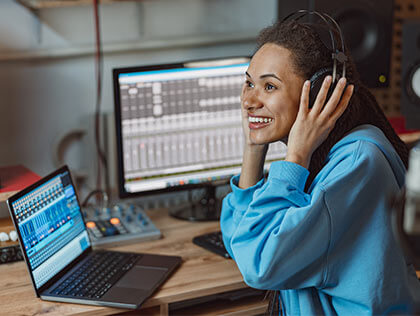
Accelerated learning
Choose to get into the industry more quickly with our audio production accelerated degree – completed in 2 rather than 3 years – and save on tuition fees and living expenses, too. Or you might decide to complete your studies across a more typical 3-year period that includes university summer breaks.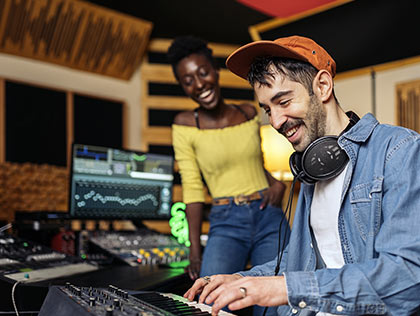
Creative collaboration
Unleash your artistic side and get creative with your fellow Audio Production students, as well as industry practitioners and those studying other SAE disciplines.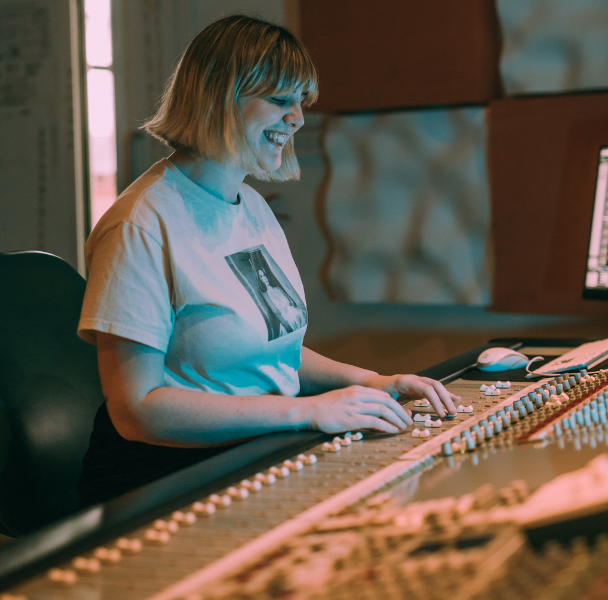
Career Outcomes
What Jobs will this course lead to?
- Studio Engineer
- Music Producer
- Game Audio Specialist
- Sound Editor
- Staging Crew
- Audio/Visual technician
- Sound Designer
- Live Sound Engineer/Operator
- Radio Broadcaster/Podcaster
- Foley Artist

YOUR DREAM CAREER IN AUDIO BEGINS HERE
Unleash your creative future in Audio Production today.Course FAQs
Audio students get the chance to collaborate with other disciplines, there are many opportunities and requirements to collaborate with students from other degrees throughout the course.
No, this is not required. Students have access to our campus computer labs for assessment work.
You will only be required to submit a portfolio if you have not met our Level 3 entry requirements for the course, 72 UCAS points or above. One of the National Course Advising team would be happy guide you on how to produce a portfolio if needed.
This can vary depending on the campus and course. You may, for example, have a larger lecture group for common units, and a smaller tutorial group of 8-15 students. In most cases tutorial sizes average 15 – 30 students.



